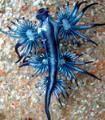
DMT-Nexus member

Posts: 1711 Joined: 03-Oct-2011 Last visit: 20-Apr-2021
|
Original Link from The Scientist.Bringing new life to some ideas related to old lamarckism. A few extracts from the full text: Quote:After plants acquire resistance to pests and pathogens, their offspring shoot up through the soil with better defenses. The findings, published in a recent series of papers in Plant Physiology, are the first to identify small interfering RNAs (siRNAs) as a possible mechanism of this inherited memory response, and suggest a new strategy for managing crop pests.
“It’s sort of like giving a vaccine to the parent and seeing immunity in the child,” said Andrei Alyokhin, who studies insect-plant interactions at the University of Maine and was not involved in the research. “It could help with the pest problem—induced resistance in plants is an extremely underutilized approach.”
Plants eventually come to know their enemies. When a caterpillar first bites into a juicy leaf, plant cells release toxic chemicals that make the pest grow more slowly. This initial encounter with a hungry herbivore primes the plant—when caterpillars come back for a second invasion, the defense reaction is more aggressive.
This is why George Jander of the Boyce Thompson Institute for Plant Research in Ithaca, New York, and his colleagues intentionally expose their tomato plants to caterpillars. “The priming increases resistance, and we are now seeing inheritance in the next generation,” he said. Quote:Taking a closer look at the mechanisms of inheritance, Rasmann first turned to small interfering RNAs (siRNAs)—a class of molecules so small they can potentially diffuse through the plant from the leaves to a developing seed. When he grew mutants that lacked siRNAs, the second generation plants showed no sign of an inherited defense response. “It seems you can’t prime the seeds without the siRNAs,” said Rasmann.
The findings are the first to demonstrate a role for siRNAs in next generation priming, wrote Ian Baldwin, of the Max Planck Institute in Jena, Germany, who was not involved in the research, in an email to The Scientist. But exactly how they work is unclear. “The actual siRNAs that are transmitted to the seeds, and their targets, still need to be identified.” Quote:The findings suggest a new way that farmers might protect future generations of crops—collect seeds from infested plants to grow stronger plants the following year. "The Menu is Not The Meal." - Alan Watts
|